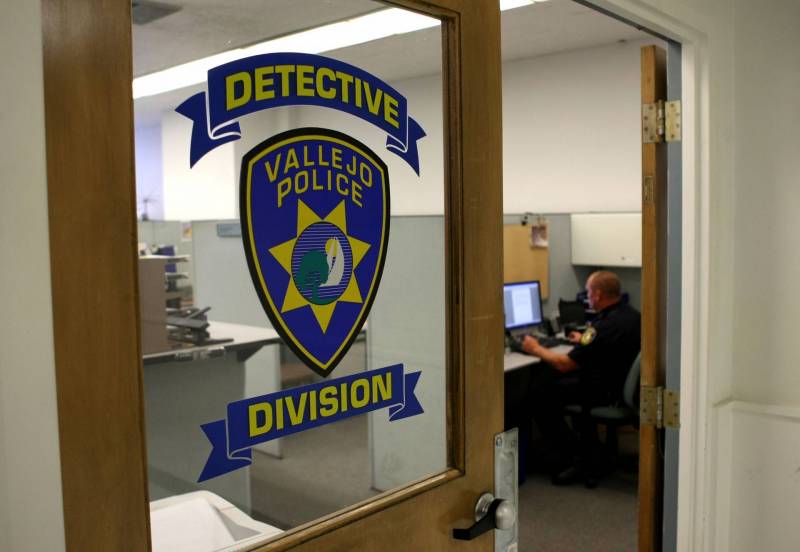In late October 2019, a group of Vallejo Police Department detectives were having lunch and talking about the preemptive PG&E power blackouts that plunged much of the North Bay into darkness. According to an internal investigation report obtained by KQED, Detective Sgt. Mathew Mustard told a racist joke.
Mustard, who is white, said the nearby town of Dixon was “as dark as Coley’s ass,” according to the investigation into the alleged incident.
To explain the joke, Mustard said that in the small town where his grandfather lived, there was only one Black man, who was known as Coley, according to the documents. Since Coley had dark skin, whenever people in the town talked about something dark, they said “as dark as Coley’s ass,” Mustard said.
Detective Cpl. Jason Scott, who is Black, felt the joke was directed at him, the report shows, and on Nov. 4, 2019, Scott filed a complaint against Mustard alleging the comment was part of a larger pattern of discrimination by his supervisor.
This is yet another scandal for a police department that has been besieged by lawsuits, allegations of misconduct, and unlawful shootings, even as its police chief continues to promise accountability and reform. The leaked report also shows that three prominent detectives weren’t truthful with investigators looking into Scott’s complaint, which could have far-reaching consequences for criminal cases built on their testimony.
Shawny Williams was sworn in as the city’s first Black police chief just eight days after Scott filed his internal complaint. Black officers make up 10% of Vallejo’s police force, according to the department’s website, while census figures show the city’s residents are about 20% African American.
Williams has said he is committed to regaining the public’s trust. The California Department of Justice is working with the city to implement reforms aimed at improving the department’s accountability and use-of-force policies. The state DOJ is also looking into the police killing of Sean Monterrosa, which led to a lawsuit, protests and allegations of evidence destruction. Williams also launched an outside investigation into allegations that officers participated in “badge bending” to mark their fatal on-duty shootings, a shocking revelation first reported by Open Vallejo, a nonprofit news site.
In an email, Vallejo Mayor Robert McConnell said that he wasn’t made aware of the racial bias investigation and said it would have violated the police officers’ rights if he had been. McConnell said his broader vision for the department “is to expand their ability and inclination to serve as a group of individuals who view themselves more as care providers who must do a difficult job, but with compassion and skills that are deployed with intelligence."
